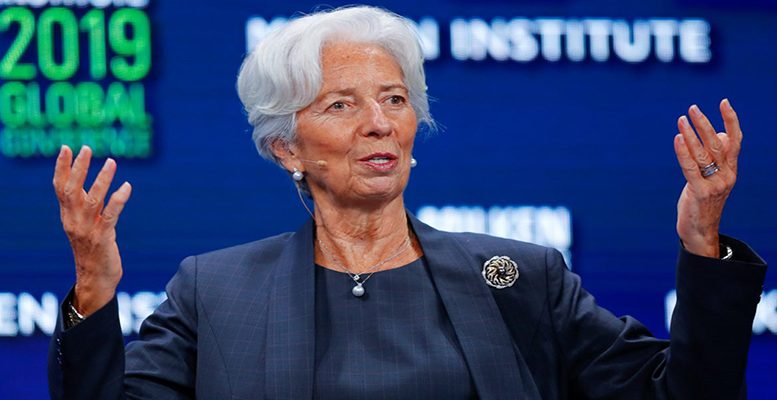Christine Lagarde’s appointment was somewhat of surprise where few economists predicted her to take the helm of the ECB, says David F. Lafferty (Natixis). This gives some indication of how complex the negotiations were for the new EC governing positions.
While she may implement small changes at the margin, we expect her to continue the ECB’s super-accommodative ways.
Lagarde is much more of political animal – a policymaker – and less so a traditional economist. Some will make a big deal of this, but I doubt it matters much. With inflation low, growth sluggish, and structural reform hard to find, she won’t have to create a new monetary policy playbook. She can pretty much play off of Draghi’s. At this point, her ability to navigate European politics is probably worth more than a PhD in economics. She will be charged with selling ECB policy, to both Eurozone countries and global investors, as much as setting it.
Her background and negotiating skills honed a the IMF will certainly come into play as she argues for increased fiscal space and structural reform across the continent, in an environment where her monetary tools have lost much of their efficacy.
As PIMCO’s Andrew Bosomworth adds:
Christine Lagarde ought to bring more of a fiscal perspective to monetary policy, which could be timely given the challenge facing the ECB during the next recession will not only be what is left in the tool box, but the efficacy of those tools too.
A fiscal perspective of monetary policy could take the form of the ECB continuing to support governments’ fiscal issuance through asset purchase sin the secondary market. Personally she has advocated the ECB maintain an accommodative stance and the IMF has argued for more simplicity and symmetry of the inflation target, so one could expect part of her focus to lie here.





